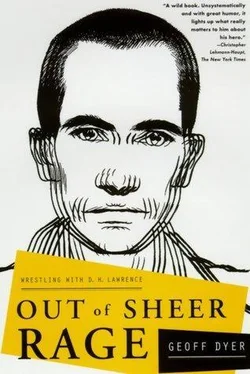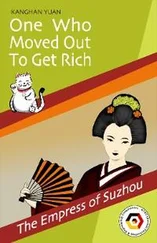Three or four times a year we went to stay with my grandparents in Shropshire. My grandfather was a farm labourer, my grandmother smoked. That is all I remember of her: her smell and her cough. First she smoked and then she died of smoking, coughing herself to death in the bedroom above the room that no one knew what to call except the room with the piano in it. Never the piano room or the music room, but the room with the piano, conceding by this strange locution that the piano was not at home there. There were sheets of depressing music on the piano but no one could play it. I bashed away at the keys without enjoyment: it wasn’t just that I had no aptitude for the piano or that there was no one around to teach me how to play: that piano had no music in it. So the only sound in the room was the noise of my grandmother coughing upstairs. She was dying of lung cancer but no one wanted to say the word cancer. Instead, to make things seem less hopeless, my parents said she had TB, the illness Lawrence could not bring himself to name, to acknowledge. He preferred to talk about trouble with his bronchials, pneumonia, flu — anything rather than tuberculosis.
The Blue Line Trail led to Walker Street, to the third of the four houses where the Lawrences lived. In a way it’s quite appropriate, this trail. Lawrence loved to give directions. His letters are full of instructions to visiting friends on how to reach him at the various places he and Frieda were staying. From Florence, in December 1926, he wrote to Rolf Gardiner, directing him through his past, providing the Birthplace Museum with its main theme. There is no passage of Lawrence’s writing that I love more than this one where the actual countryside changes in the process of composition into the semi-mythical Lawrence country.
If you’re in those parts again, go to Eastwood, where I was born, and lived for my first 21 years. Go to Walker St. — and stand in front of the third house — and look across at Crich on the left, Underwood in front — High Park Woods and Annesley on the right: I lived in that house from the age of 6 to 18, and I know that view better than any in the world. — Then walk down the fields to the Breach, and in the corner house facing the stile I lived from 1 to 6. — And walk up Engine Lane, over the level crossing at Moorgreen pit, along till you come to the highway (the Alfreton Rd) — turn to the left, towards Underwood, and go till you come to the lodge gate by the reservoir — go through the gate, and up the drive to the next gate, and continue on the
footpath
just below the drive on the left — on through the wood to Felley Mill. When you’ve crossed the brook, turn to the right (the
White Peacock
farm) through Felley Mill gate, and go up the footpath to Annesley. Or better still, turn to the right, uphill,
before
you descend to the brook, and go on uphill, up the rough deserted pasture — on past Annesley kennels — long empty — on to Annesley again. — That’s the country of my heart. — From the hills, if you look across at Underwood wood, you’ll see a tiny red farm on the edge of the wood — That was Miriam’s farm — where I got my first incentive to write. — I’ll go with you there some day.
I stood there later the same day, outside the house on Walker Street, looking at council houses and satellite dishes, Spender pylons. Insofar as the word suggested something pleasing to the eye, it scarcely merited being described as a view. The pavement was grey with cold, the sky was pavement grey. It would have come as no surprise to find that in the local dialect there was a single expression for ‘it’s getting light’ and ‘it’s getting dark’. If the sky was supposed to serve as a conduit for light then it was no longer working. It turned up on time each day but there was never anything doing. Skies have their history too, remember, and this one was still recovering from the bruising it took in the last century.
It was getting on for two. Soon it would be night and soon after that it would be Christmas. Then it would be January, and so on. Christ, I thought, how I would hate to live here. I’d rather live anywhere than here, I thought, even though there were plenty of worse places to live. During the miners’ strike in the early 1980s it was said that the closure of collieries would tear the heart out of communities. As long as there is a video shop and an all-night garage, places get along just fine after the heart has been ripped out of them. The idea of community is appealed to as a way of registering how bad things have become. It is the word on everybody’s lips when teenagers beat to death the deaf pensioner next door. That’s when ‘the local community is united in grief’. Otherwise ‘community’ is invoked only to lament its having passed. Better to get rid of it once and for all and take up the American idea of neighbourhood. Even if they live in the midst of it some people are always excluded, or can choose to exclude themselves, from the community. Everyone who lives in a neighbourhood belongs to it, is part of it. The principle is geographical, not demographic. The only way to opt out of a neighbourhood is to move out, as Lawrence did.
In a way, though, it was difficult to imagine a more fitting tribute to Lawrence than present-day Eastwood. Whingeing about the ugliness of Eastwood is somehow to wish that all writers grew up in Knole Castle. Lawrence grew up in this ugly little town and the best monument to him is its ugliness. It is even better than his own suggestion: ‘Pull down my native village to the last brick,’ he wrote in his late essay ‘Nottingham and the Mining Countryside’, ‘and make an absolute clean start.’ Except there are no clean starts, in architecture or anything else. Anything new is likely to be worse than what was there before. Going back to what we had before seems a better idea than starting over. Knock down tower blocks and build slums. Re-create Victorian Eastwood with decent plumbing and central heating. Still, I liked the idea of some radical Lawrence fanatics from the anarcho fringe of the heritage movement, insisting that the only way to reclaim him for good was to take him at his word and raze Eastwood to the ground.
A few years before going to Eastwood I had travelled to Algiers to read Albert Camus’s ‘Nuptials’ and ‘Summer’ on site. It was an absurd expedition, like going to England hoping to find the London of Dickens. Predictably, nothing of the culture celebrated by Camus survived. Slowly and systematically Algiers had been transformed: from Paris to Stockwell. Camus said that if man needs bread and housing ‘he also needs pure beauty which is the bread of his heart’, but in Algiers necessity had ousted beauty. I remembered that line of Camus’s in Eastwood, amid the ugliness that led Lawrence to admonish, with characteristic vehemence, that ‘the human soul needs actual beauty even more than bread’. Lawrence and Camus: the miner’s son, and the man whose mother had to ask a neighbour to read the telex informing her that her son had won the Nobel Prize.
After the Algerian War of Independence all the street names were changed and written only in Arabic. I took a taxi to Belcourt, the area of Algiers where Albert lived with his widowed mother until his mid-teens. The house at 93 Rue de Lyon (now Rue Belouizdad Mohammed) was a two-storey place with a small balcony overlooking the street, exactly as described in L’Étranger when Mersault whiles away the Sunday after his mother’s funeral. Below were a dry-cleaner’s and a watchmaker’s. There was no sign or plaque. The only thing to do, once I had arrived there, was to leave. So what was the point in coming? At the time I didn’t know, but in Rome, thinking about these trips — to Taormina, Algiers and Eastwood — the point seemed simple: this was where Camus had lived and I had gone there because he had lived there, just as I had gone to Taormina, to Eastwood. If Camus hadn’t lived in Algiers I would not have gone to Algiers.
Читать дальше












